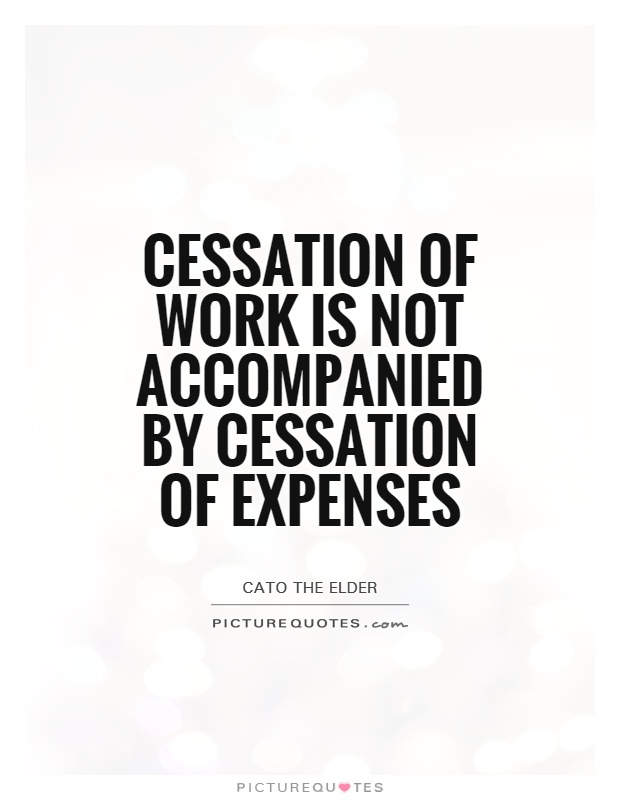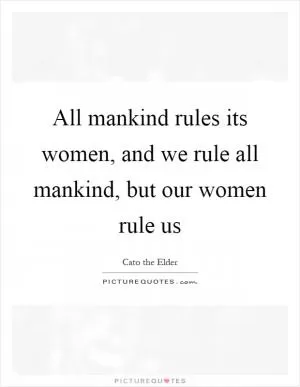Cessation of work is not accompanied by cessation of expenses

Cessation of work is not accompanied by cessation of expenses
In the context of Cato the Elder, the statement "Cessation of work is not accompanied by cessation of expenses" holds particular significance. Cato the Elder, also known as Cato the Censor, was a Roman statesman and historian who lived during the 2nd century BC. He was known for his frugality, discipline, and dedication to the Roman Republic. Cato believed in the importance of hard work, self-sufficiency, and financial responsibility.For Cato, the idea that expenses do not stop when work stops would have been a fundamental truth. He understood that even when one is not actively working, there are still ongoing expenses to be met. This could include basic necessities such as food, shelter, clothing, and other essentials. Cato would have emphasized the importance of planning ahead, saving for the future, and living within one's means to ensure that expenses could be met even during times of inactivity.
Cato's own life exemplified his beliefs in frugality and financial prudence. He was known for his simple lifestyle, modest dress, and disdain for luxury. Cato believed that excessive spending and indulgence were signs of moral weakness and could lead to financial ruin. He advocated for thrift, hard work, and self-reliance as the keys to financial stability and success.












 Friendship Quotes
Friendship Quotes Love Quotes
Love Quotes Life Quotes
Life Quotes Funny Quotes
Funny Quotes Motivational Quotes
Motivational Quotes Inspirational Quotes
Inspirational Quotes